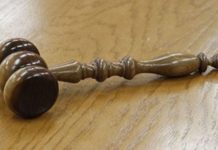
July 29 (UPI) — A federal judge this week ruled against a Virginia public official, saying she violated the First Amendment rights of a constituent who she blocked on Facebook, a case that could effect politicians all the way up to President Donald Trump.
The plaintiff in the case, Brian Davison, sued Louden County Board of Supervisors Chairwoman Phyllis Randall after she blocked him from a Facebook page she promoted as a vehicle to communicate with constituents. Davison used the page to accuse members of the Loudon County School Board of official corruption.
Randall deleted the post and blocked Davison from viewing any subsequent posts.
District Court Judge James Cacheris ruled in Davison’s favor, finding Randall violated Davison’s First Amendment rights by blocking him from reading government information that was otherwise available to the public.
Cacheris said Randall did not have the right to ban Davison from accessing public information “because she was offended by his criticism of her colleagues in the county government.”
Because Randall used her Facebook page to disseminate information about government, blocking users was “a cardinal sin under the First Amendment,” Cacheris ruled this week.
A similar suit has been filed against Trump by a First Amendment group on behalf of the hundreds of Twitter users Trump has blocked from his personal Twitter page, @realDonaldTrump. Trump has frequently turned to his personal Twitter account, rather than the official @POTUS account, as a means for proclamations about government business.
Earlier this week, he tweeted from @realDonaldTrump that the U.S. military would no longer permit transgender people to serve in any capacity. However, showing the limits of social media, Joint Chiefs of Staff Chairman Gen. Joe Dunford said the Pentagon would not abide by Trump’s announcement because a tweet does not constitute an actual executive order.





